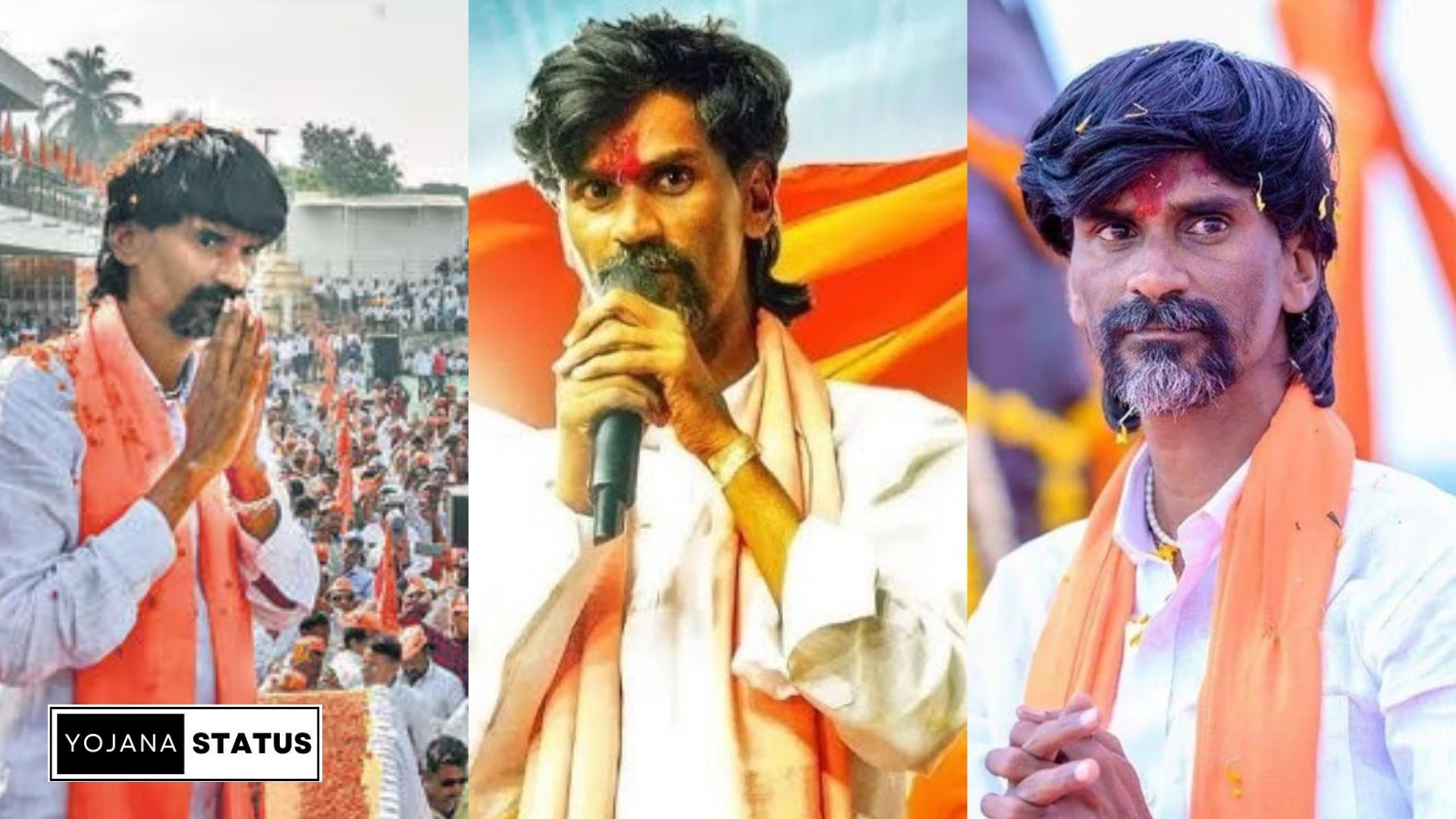Manoj Jarange Patil Wiki, Wikipedia, Family, Village, Date of Birth, Live Location, Education, Village Name, Live, Demand, Wife, Education Qualification, Birthday Date, Rally
Manoj Jarange Patil Wiki, Wikipedia, Family, Village, Date of Birth, Live Location, Education, Village Name, Live, Demand, Wife, Education Qualification, Birthday Date, Rally – Manoj Jarange Patil, a 40-year-old social activist, has emerged as a key figure in the Maratha community’s struggle for reservation in Maharashtra. His hunger strike, initiated on September 14, 2023, seeks to reinstate the quota nullified by the Supreme Court. This overview delves into Manoj’s early life, physical attributes, educational background, family history, personal life, career, controversies, recent news, and interesting facts about him.
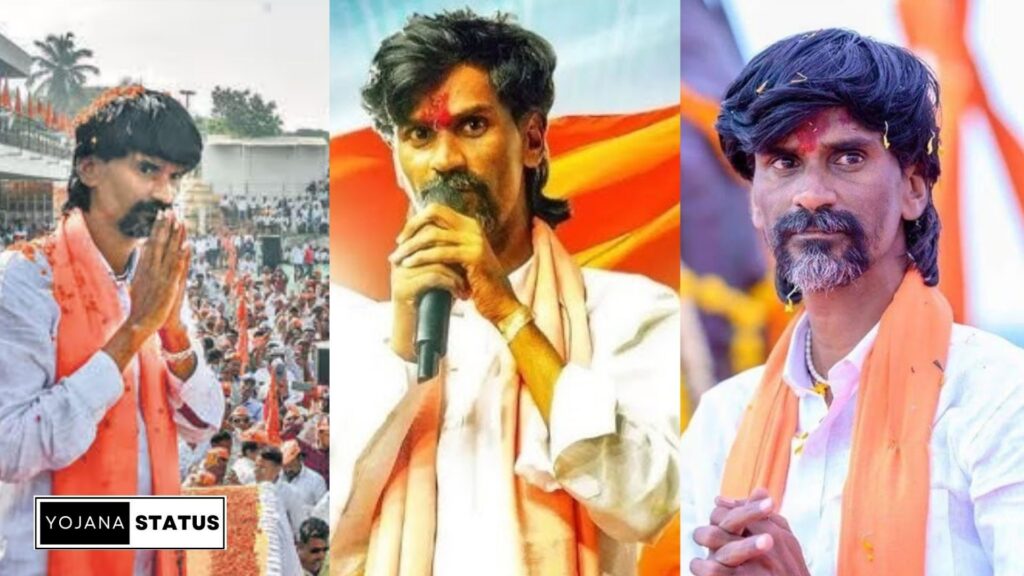
Manoj Jarange Patil Biography:
| Category | Information |
|---|---|
| Full Name | Manoj Jarange Patil |
| Age | 40 |
| Birth Date | 1982 |
| Birthplace | Mathori village, Beed district, Maharashtra |
| Caste | Maratha Kunbi |
| Nationality | Indian |
| Education | R.B. Attal College, Gevrai, Maharashtra (Graduate) |
| Career | Social activist, Founder of Shivba Sanghatana |
| Marital Status | Married |
| Family | Married to Sumitra Jarange, four children |
Manoj Jarange Patil Early Life & Background:
Manoj was born in Mathori village, Beed district, Maharashtra, in 1982. Growing up in a Maratha Hindu family, his early experiences in a rural setting laid the foundation for his later activism. His journey from a small village to the forefront of a significant social movement is marked by a commitment to justice and community empowerment.
Manoj Jarange Patil Measurements:
Standing at 173 cm (5ft 8in), Manoj possesses distinctive black eyes and black hair, contributing to his unique presence as an activist and leader.
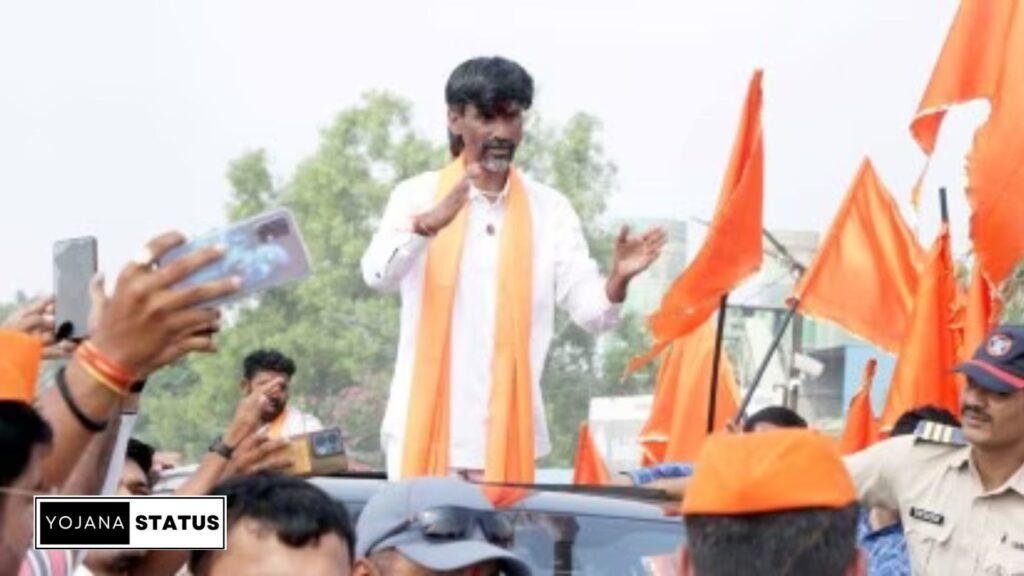
| Category | Information |
|---|---|
| Height | 173 cm (5ft 8in) |
| Eye Color | Black |
| Hair Color | Black |
Manoj Jarange Patil Education Qualification:
Manoj’s educational journey includes graduating from R.B. Attal College in Gevrai, Maharashtra. While specific details about his academic pursuits are limited, his commitment to social causes has defined his public persona.
| Category | Information |
|---|---|
| School | Not Known |
| College | R.B. Attal College, Gevrai, Maharashtra |
| Educational Qualification | Graduate |
Manoj Jarange Patil Family Background:
Hailing from the Maratha Kunbi caste, Manoj’s family roots trace back to Mathori village in Beed district. His parents, engaged in agriculture, live with him in Ankush Nagar village, Jalna district. Together with his wife and children, they have become an integral part of Manoj’s activism, facing challenges and advocating for the Maratha community’s rights.
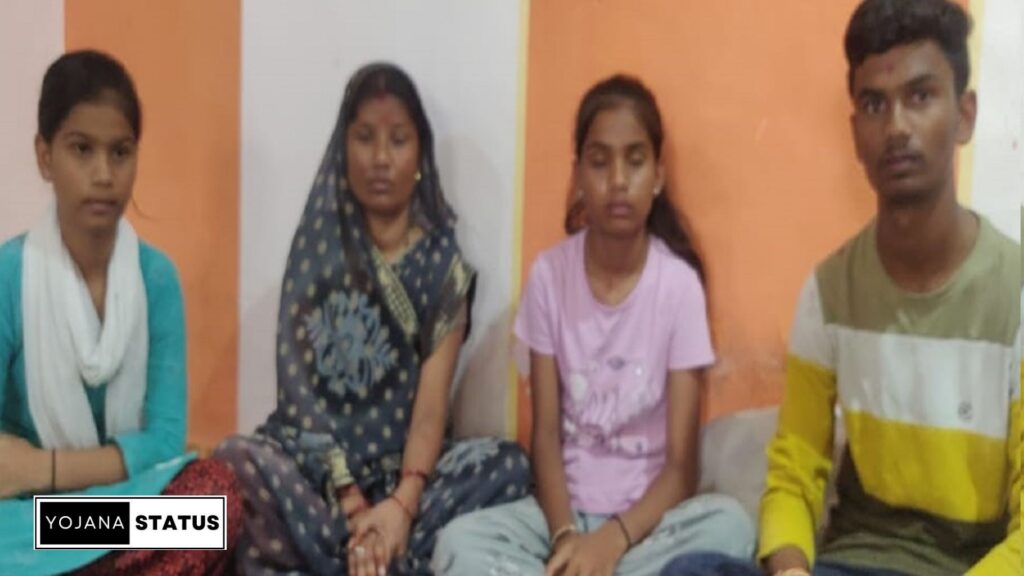
| Category | Information |
|---|---|
| Father | Raosaheb Jarange |
| Mother | Prabhavati Jarange |
| Brothers | Jagannath Jarange & Kakasaheb Jarange |
| Wife | Sumitra Jarange |
| Children | Two Sons and Two Daughters (Names and Ages not specified) |
Manoj Jarange Patil Relationship Status:
Manoj’s personal life is closely tied to his activism. Married to Sumitra Jarange, who shares the Maratha Kunbi caste, the couple has four children – two sons and two daughters. Their home in Mohite Vasti, Jalna, serves as a center for support and solidarity during Manoj’s hunger strike.
Manoj is married to Sumitra Jarange, and the couple, along with their children, actively supports the cause of Maratha reservation. Their relationship becomes an essential pillar in Manoj’s quest for justice and social equality.
Manoj Jarange Patil Net Worth:
While specifics about Manoj’s net worth remain elusive, belonging to the Maratha Kunbi caste suggests a connection to agriculture. An estimate places his net worth between INR 10 lakh to INR 50 lakh, factoring in potential savings and income from his organization.
Manoj Jarange Patil Controversy:
The controversy surrounding Manoj Jarange Patil’s hunger strike revolves around the broader implications of the Maratha reservation movement in Maharashtra. While his protest has garnered widespread attention and support, it has also been marked by clashes, violence, and debates on the effectiveness of caste-based reservations in India.
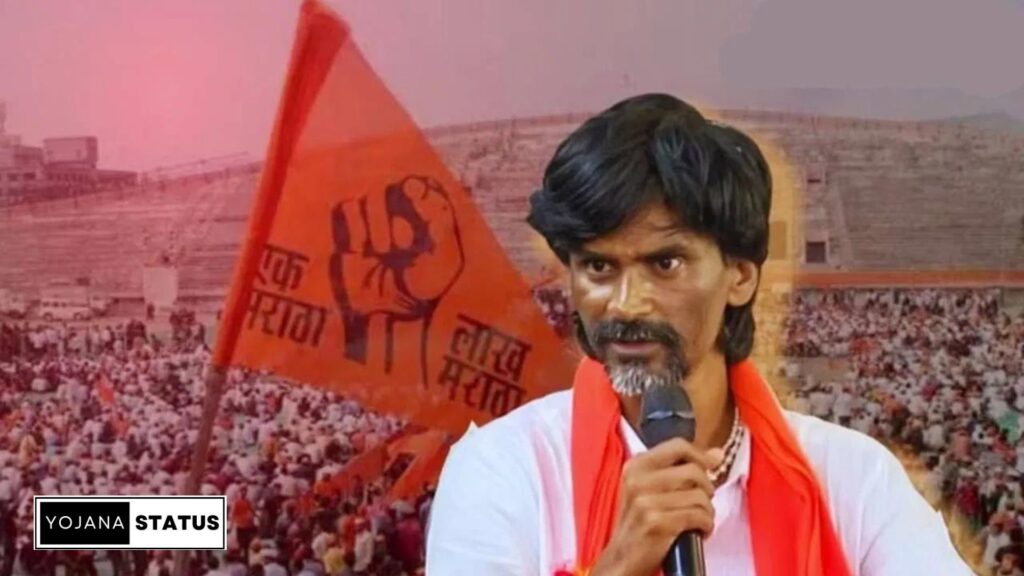
- Supreme Court Verdict:
- The genesis of the controversy lies in the Supreme Court’s verdict in May 2023, which struck down the Maharashtra State Reservation for Socially and Educationally Backward Classes (SEBC) Act, 2018. This act had granted a 16% reservation to the Maratha community in government jobs and education. The court deemed the act unconstitutional, citing violations of the 50% ceiling on reservations imposed by the Constitution and questioning the social and educational backwardness of the Maratha community.
- Legal and Constitutional Questions:
- Manoj Jarange’s demand for the central government to issue an ordinance or amend the Constitution to restore the reservation for the Maratha community raises legal and constitutional questions. The Supreme Court’s position that only the President, on the advice of the National Commission for Backward Classes (NCBC), can identify backward classes adds complexity to the situation.
- Impact on Other Communities:
- The controversy extends beyond the Maratha community, raising concerns among other backward classes (OBCs), Dalits, tribals, Muslims, and minorities. Some fear that granting the Maratha community its quota might lead to a reduction or reallocation of their own share of reservations. This has created a sense of insecurity and competition among different communities vying for limited reserved seats.
- Violence and Clashes:
- Manoj Jarange Patil’s hunger strike has not been without turmoil. Clashes between his supporters and the police have resulted in injuries on both sides and damage to public property. The incident on September 18, 2023, when a police team attempted to forcibly take him to a hospital, escalated into a violent confrontation. Stones and sticks were used, and the police responded with tear gas and baton charges, underscoring the volatile nature of the situation.
- Disruption of Public Order:
- The protest has disrupted public order in Jalna district and other parts of Maharashtra. Supporters have engaged in road blockades, rail roko (stop train) agitations, and enforced bandhs (shutdowns), impacting normal life and business activities. Such disruptions have led to arrests, injuries, and damage to public and private property, intensifying the controversy.
- Political Criticism and Support:
- Political parties, both in support and opposition, have contributed to the controversy. While the opposition parties, including the BJP, Shiv Sena, NCP, Congress, MNS, BSP, SP, AAP, Swabhimani Paksha, and VBA, express support for Manoj and his demands, the government’s response remains a subject of criticism. The BJP’s state president, Raosaheb Danve, faced protests, with demands for his resignation from supporters accusing him of betraying the Maratha community.
- Threats of Civil Disobedience:
- Manoj Jarange Patil’s announcement that his supporters would launch a civil disobedience movement, refusing to pay taxes, bills, fees, fines, and boycotting government services and schemes if their demands were not met, further escalated the controversy. The threat of self-immolation added a concerning dimension to the already tense situation.
- Government Response:
- The response from both the state and central governments has been a focal point of the controversy. Chief Minister Uddhav Thackeray’s attempts to persuade Manoj to end his hunger strike, the formation of a cabinet sub-committee to address the reservation issue, and filing a review petition in the Supreme Court have been met with mixed reactions. The central government’s stance on its limitations in exceeding the 50% ceiling on reservation adds another layer to the ongoing debate.
Manoj Jarange Patil Career Beginnings:
Manoj Jarange Patil’s career is a testament to his unwavering commitment to social and political causes, particularly focused on the rights and welfare of the Maratha community in Maharashtra. Born in 1982 in Mathori village, Beed district, his early career took shape in the political arena as a worker for the Congress party. Influenced by the ideals of Shivaji Maharaj, the 17th-century Maratha king, Manoj later parted ways with the Congress and forged his own path by establishing the organization ‘Shivba Sanghatana’ in 2011.
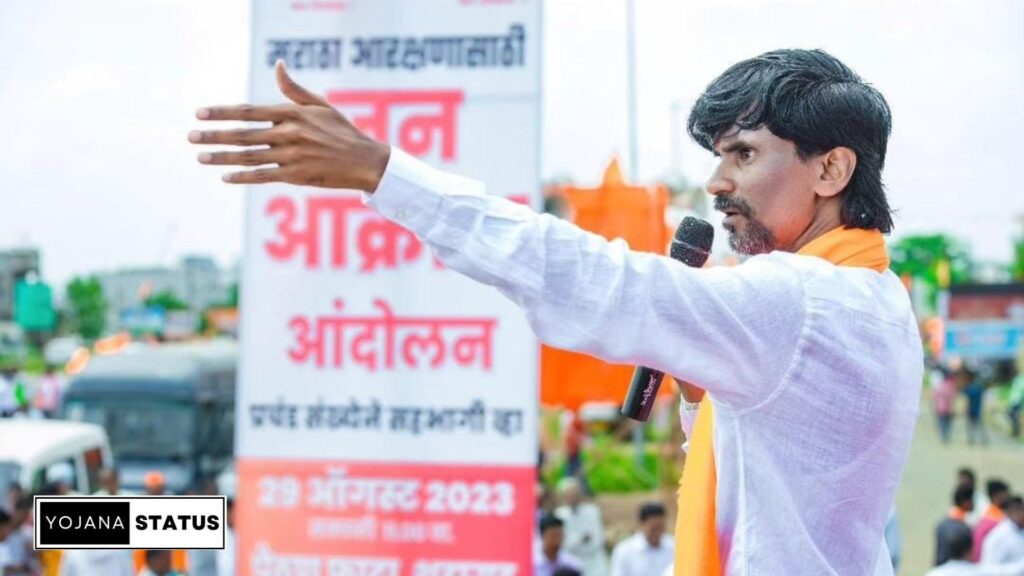
His entry into the political sphere marked the beginning of a journey dedicated to addressing the multifaceted challenges faced by his community. Manoj’s career as an activist gained momentum as he tackled issues such as farmers’ suicides, water scarcity, corruption, and unemployment. The social and political landscape of Maharashtra became the canvas for his endeavors, and he emerged as a vocal advocate for the rights of the Maratha community.
One significant turning point in Manoj’s career occurred in 2014 when he actively joined the Maratha reservation movement. The brutal gang-rape and murder of a 15-year-old Maratha girl in Kopardi village triggered widespread outrage, leading to protests demanding justice for the victim and reservation for the Maratha community. This incident fueled Manoj’s passion for the cause, propelling him into the forefront of the reservation movement.
In 2018, the Supreme Court quashed the Maharashtra State Reservation for Socially and Educationally Backward Classes (SEBC) Act, 2018, which granted 16% reservation to the Maratha community. Undeterred by this setback, Manoj intensified his activism, challenging the court’s decision and demanding the restoration of the reservation. This pivotal moment marked a significant shift in his career, as he transitioned from a local activist to a symbol of resistance for the Maratha community.
The year 2021 saw Manoj leading a three-month agitation after the Supreme Court’s decision, garnering attention and drawing then Chief Minister Uddhav Thackeray into a dialogue. However, it was in 2023 that Manoj embarked on a more impactful and widely publicized career move – a hunger strike initiated on September 14. This drastic step aimed to draw attention to the urgency of reinstating the Maratha reservation and challenging the constitutional barriers imposed by the Supreme Court.
As news of his hunger strike spread, Manoj’s career as an activist gained national attention. Clashes with the police, road blockades, and protests became part of the narrative, turning his individual struggle into a movement that resonated with various sections of society. The impact of his career in activism extends beyond personal aspirations, making him a symbol of resilience and determination for the Maratha community.
In response to his hunger strike, the government, both at the state and central levels, engaged in efforts to address the reservation issue. Chief Minister Uddhav Thackeray’s government formed a cabinet sub-committee to explore legal solutions, while the central government emphasized cooperation within the legal framework set by the Supreme Court.
Manoj Jarange Patil’s career trajectory is not merely about individual pursuits; it represents a collective struggle for social justice, community rights, and the assertion of a marginalized group’s identity. As his hunger strike continues, the unfolding chapters of his career serve as a poignant narrative of activism in the face of systemic challenges, leaving an indelible mark on the ongoing discourse around reservations and social equality in India.
Manoj Jarange Patil Social Media:
| Category | Information |
|---|---|
| Click Here | |
| Click Here | |
| Click Here |
Manoj Jarange Patil News:
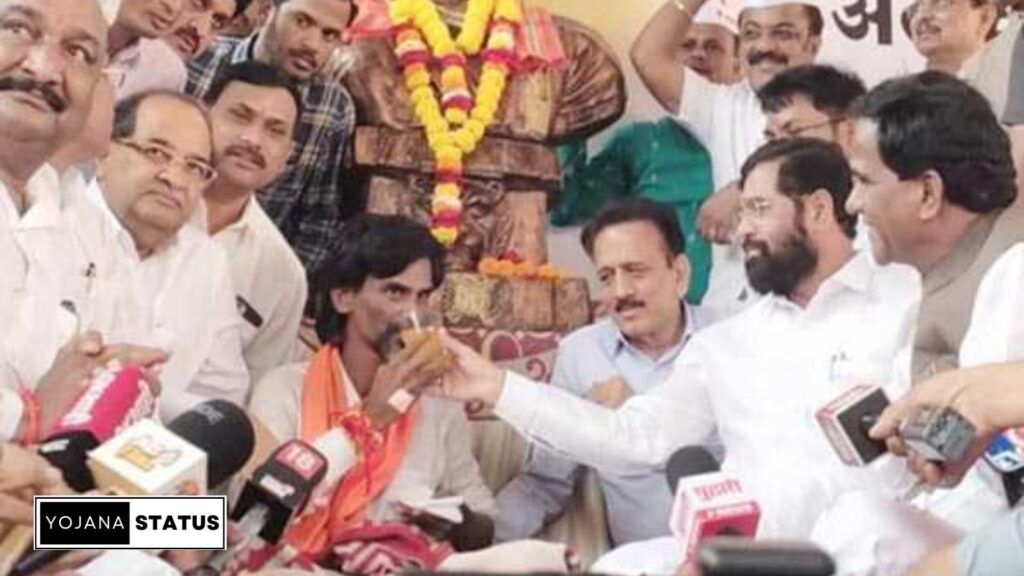
Recent news surrounding Manoj Jarange Patil revolves around his ongoing hunger strike and the widespread impact it has had on the Maratha community. Clashes with authorities, road blockades, and protests continue to dominate headlines, bringing attention to the broader implications of his movement.
Manoj Jarange Patil Facts:
- Born in 1982 in Mathori village, Beed district.
- Founded ‘Shivba Sanghatana’ in 2011, focusing on Maratha community rights.
- Led a three-month protest in 2021 after the Supreme Court quashed Maratha reservation.
- Initiated the hunger strike in August 2023, gaining attention after police intervention and violence.
- Ended the nine-day hunger strike on November 2, 2023, with warnings of a larger agitation.
Conclusion:
Manoj Jarange Patil’s life and activism reflect the intricate interplay between personal experiences and societal challenges. His journey from a small village to a prominent activist underscores the complexities of India’s social fabric. As his hunger strike unfolds, the impact on the Maratha community and the broader discourse on social justice and reservations in India remains a critical subject of observation and discussion.
Also Read:
- Lalita Pawar Wiki, Wikipedia, Husband, Images, Son, Age, Death, Young Pic, Date of Birth
- Malavika Manoj Wikipedia, Wiki, Age, Singer, Height, Date of Birth, Movie List, Instagram
- Soniya Bansal Boyfriend, Wikipedia, Wiki, Age, Net Worth, Education, Instagram, Videos, Biography, Relationships
FAQ:
Who is Manoj Jarange?
Manoj Jarange-Patil is a person originally from Beed district, Maharashtra, who now resides in Shahgad, Jalna district. About 15 years ago, he actively joined a movement advocating for reservations for the Maratha community in government jobs and education.
What are the demands of Manoj Jarange?
Manoj Jarange Patil is demanding the immediate implementation of reservations for the Maratha community. Marathas make up 33% of Maharashtra’s population and come from various castes, including landowners, peasants, and warriors. The demand for reservation aims to address their representation in government jobs and education.
What triggered Manoj’s activism?
Manoj became actively involved in the Maratha reservation movement in 2014 after a 15-year-old Maratha girl was gang-raped and murdered in Kopardi village, Ahmednagar district. The incident sparked widespread outrage and protests, leading him to join various marches and rallies.
What is Manoj education?
Manoj graduated from R.B. Attal College in Gevrai, Maharashtra. While specific details about his academic pursuits are limited, his commitment to social causes has defined his public persona.
What is the future of Manoj movement?
The future of Manoj’s movement remains uncertain. His hunger strike has become a symbol of resistance for the Maratha community, questioning the validity of caste-based reservations. The movement’s impact on social justice and national integration is a subject of ongoing discussion and observation.
